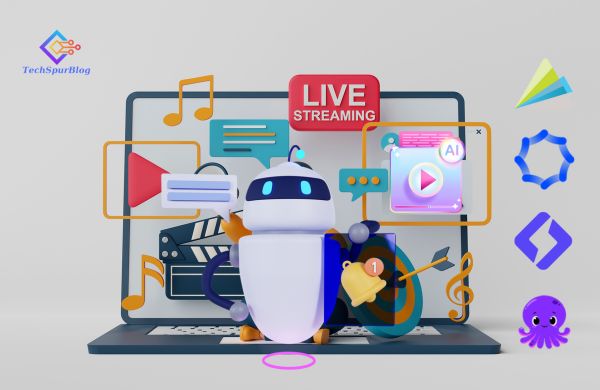
In today’s digital landscape, video content has emerged as a powerhouse in marketing strategies, captivating audiences with its dynamic and engaging nature. As consumers increasingly prefer video over other content formats, marketers face the challenge of consistently producing high-quality, engaging video content that resonates with their target audience. Enter artificial intelligence (AI) a game-changer that’s revolutionizing video content creation by streamlining processes and enhancing creativity for marketing professionals.
This Article will explore how AI tools are transforming video marketing, providing you with insights and practical advice to elevate your strategy. We’ll delve into the importance of video content, introduce you to cutting-edge AI tools, and offer tips on implementing these technologies to stay ahead in the competitive world of digital marketing.
The Undeniable Power of Video Content in Marketing
Before we dive into the world of AI tools, let’s establish why video content has become crucial in modern marketing strategies:
Engagement Powerhouse
Videos capture attention like no other medium. According to Wyzowl’s 2023 State of Video Marketing report, 91% of businesses use video as a marketing tool, up from 61% in 2016. This surge in adoption is no coincidence – videos are proven to increase user engagement and time spent on websites.
Consumer Preference
The same report reveals that 69% of consumers prefer to learn about a product or service through video. This preference translates directly into consumer behavior, with videos influencing purchasing decisions and brand perception.
SEO and Visibility Boost
Video content significantly improves search engine rankings. Websites with video content are 53 times more likely to reach the first page of Google search results, according to Moovly. Moreover, video content boosts visibility on platforms like YouTube (the second largest search engine) and social media networks, where algorithms often prioritize video content.
Conversion Catalyst
Videos don’t just engage; they convert. Optinmonster reports that including a video on a landing page can increase conversions by up to 86%. This powerful statistic underscores the role of video in driving tangible business results.
Also Read: Top 5 Tools to Create Videos with AI from Text
AI: The Catalyst in Video Content Creation
Artificial Intelligence has emerged as a transformative force in video marketing, addressing many of the challenges faced by content creators and marketers:
Efficiency and Speed: AI tools dramatically reduce the time and resources required to produce high-quality video content. Tasks that once took days can now be accomplished in hours or even minutes.
Consistency at Scale: AI enables marketers to maintain brand consistency across a high volume of video content, ensuring that messaging and visual elements remain on-brand regardless of the quantity produced.
Data-Driven Insights: Many AI tools offer analytics capabilities, providing marketers with valuable insights into viewer engagement, content performance, and areas for improvement.
Personalization: AI allows for the creation of personalized video content at scale, tailoring messages to specific audience segments or even individual viewers.
Now, let’s explore some of the best AI tools that are revolutionizing video marketing:
Game-Changing AI Tools for Video Marketing
Lumen5
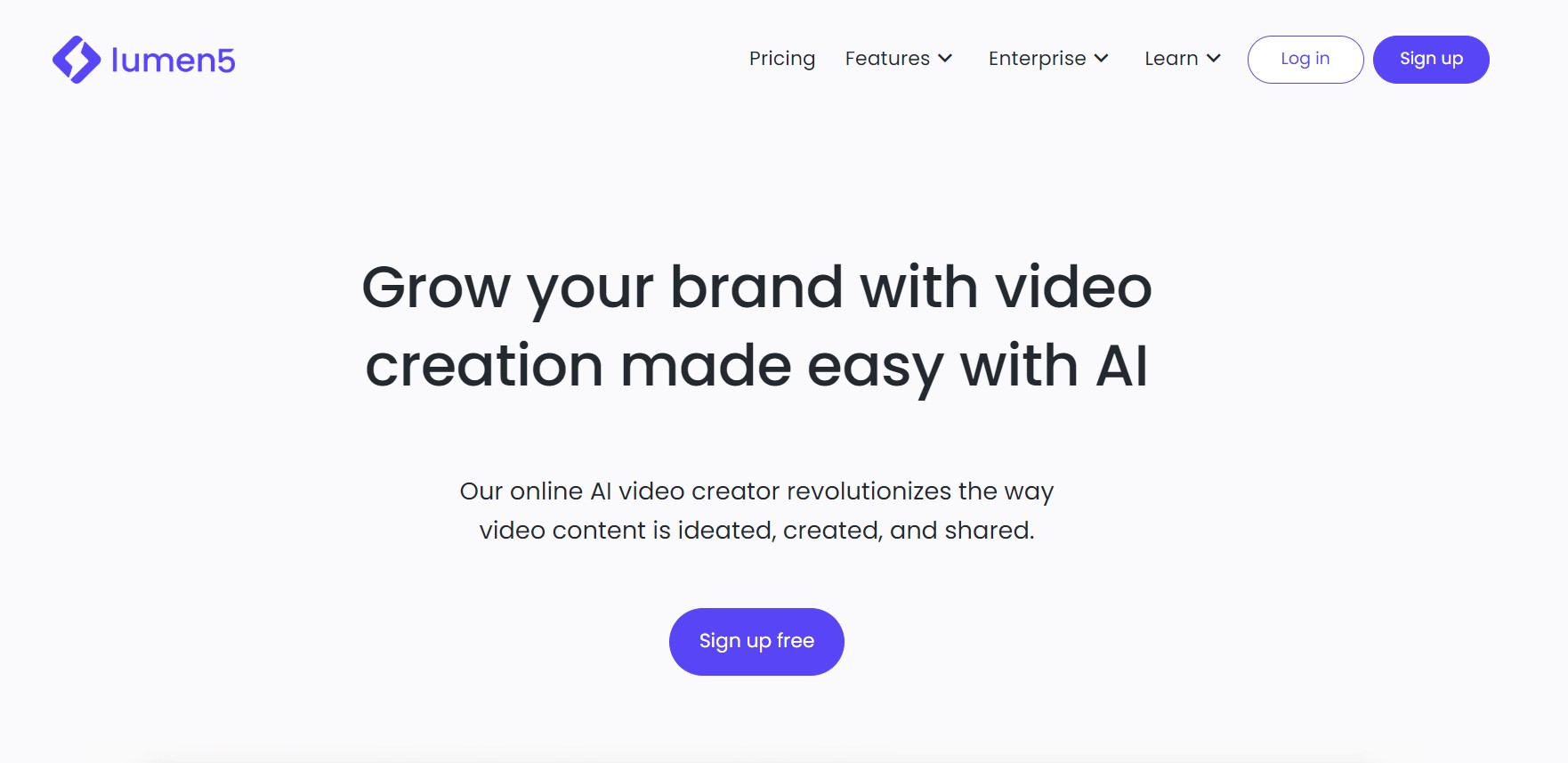
Transforming Text into Engaging Videos
Overview: Lumen5 is an AI-powered platform that converts written content like blog posts or articles into captivating video format.
Key Features:
-
Advanced text-to-video technology
-
Intuitive drag-and-drop interface
-
Customizable templates for various industries and purposes
-
Branded content options to maintain visual identity
Use Case: Marketers can leverage Lumen5 to quickly create engaging explainer videos or social media clips from existing blog content. This repurposing of content not only saves time but also extends the reach of your message across different platforms and audience preferences.
Synthesia
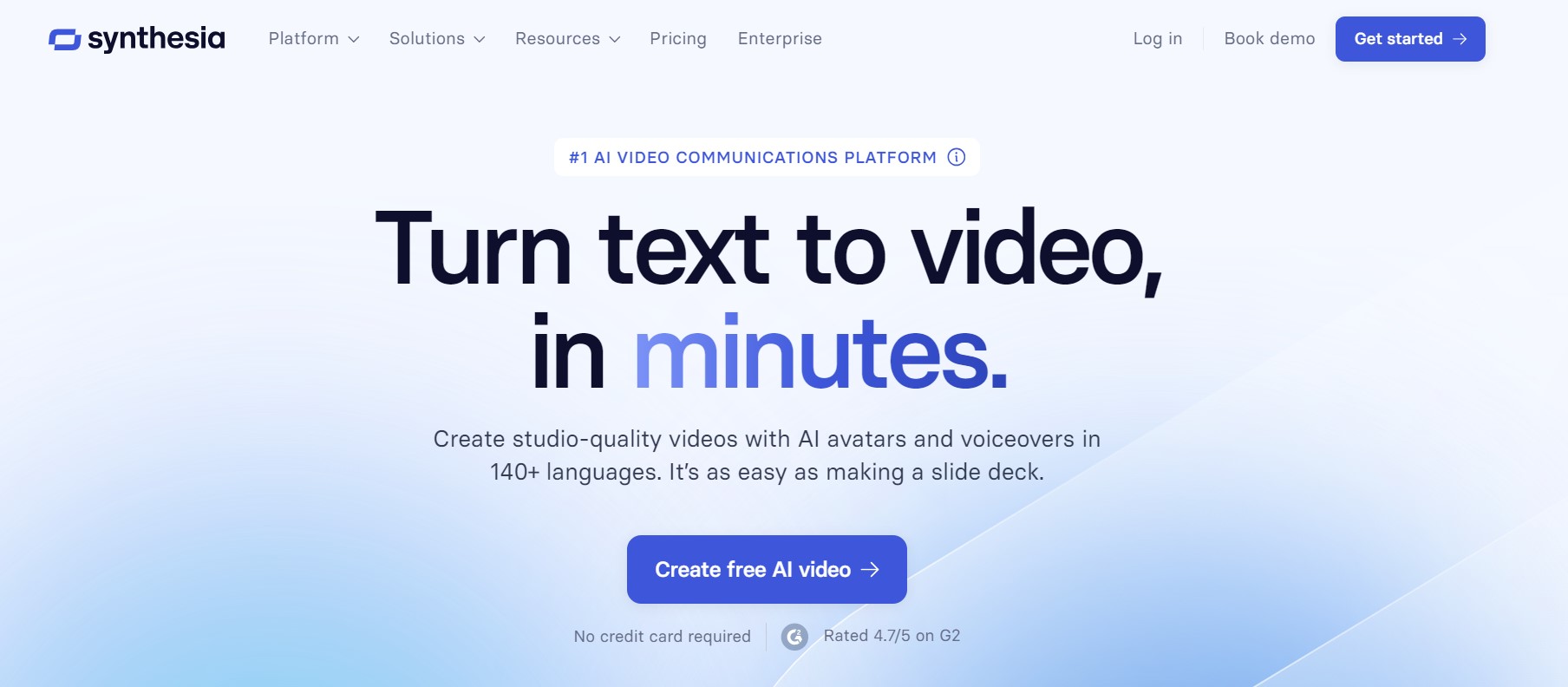
AI-Powered Human-Like Video Presenters
Overview: Synthesia offers a groundbreaking solution for creating videos with human-like presenters without the need for live actors or expensive video shoots.
Key Features:
-
Diverse AI avatars representing various demographics
-
Multilingual capabilities for global marketing campaigns
-
Customizable backgrounds and settings
-
Advanced lip-sync technology for natural-looking speech
Use Case: Brands can utilize Synthesia to produce professional training videos, product demonstrations, or even host virtual events with AI presenters. This tool is particularly valuable for creating localized content for international markets or when budget constraints limit the use of live actors.
Pictory
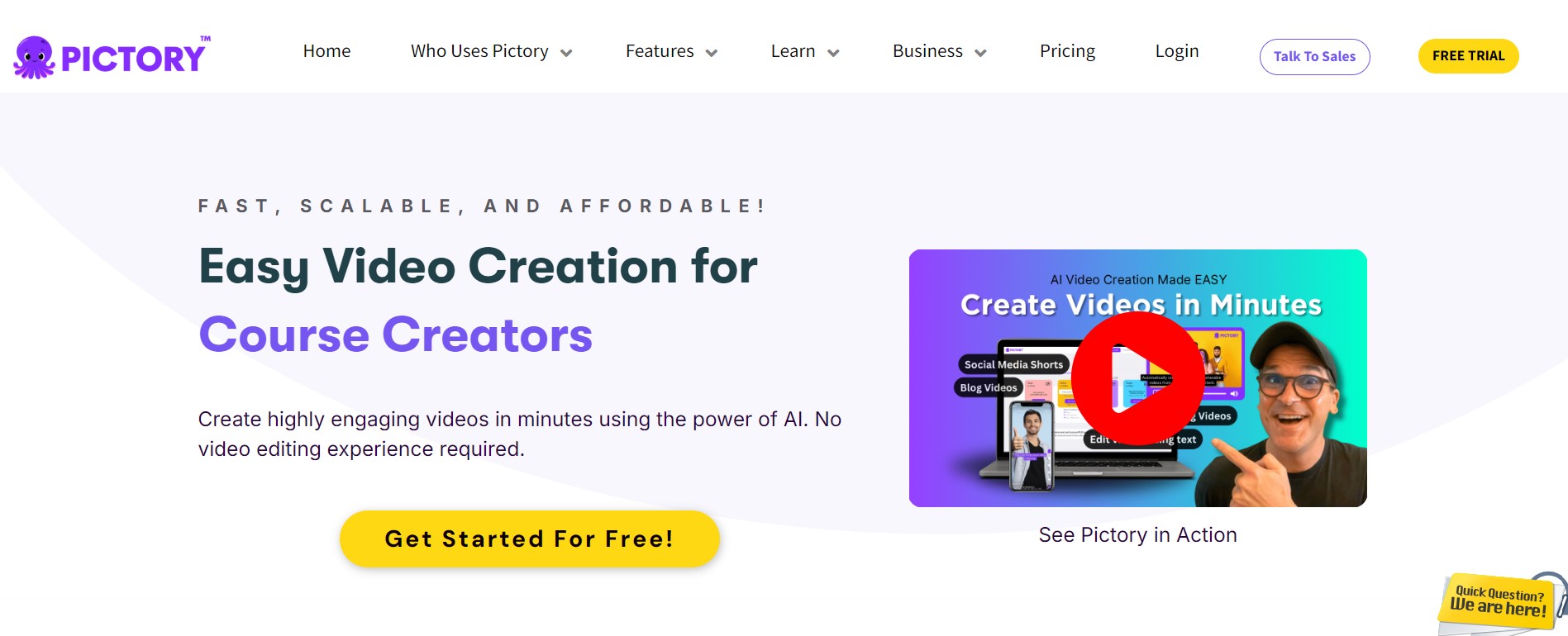
Automatic Video Summarization and Editing
Overview: Pictory is an AI tool that excels at summarizing long-form content into short, compelling videos.
Key Features:
-
Automatic video generation from articles or long-form content
-
Integration with stock footage libraries
-
Customizable captions and text overlays
-
Brand kit integration for consistent visual identity
Use Case: Content marketers can use Pictory to repurpose lengthy blog posts, webinars, or podcast episodes into shareable short-form videos. This tool is particularly effective for creating teaser content to promote longer pieces or for distilling key points from complex topics into easily digestible video snippets.
Animoto
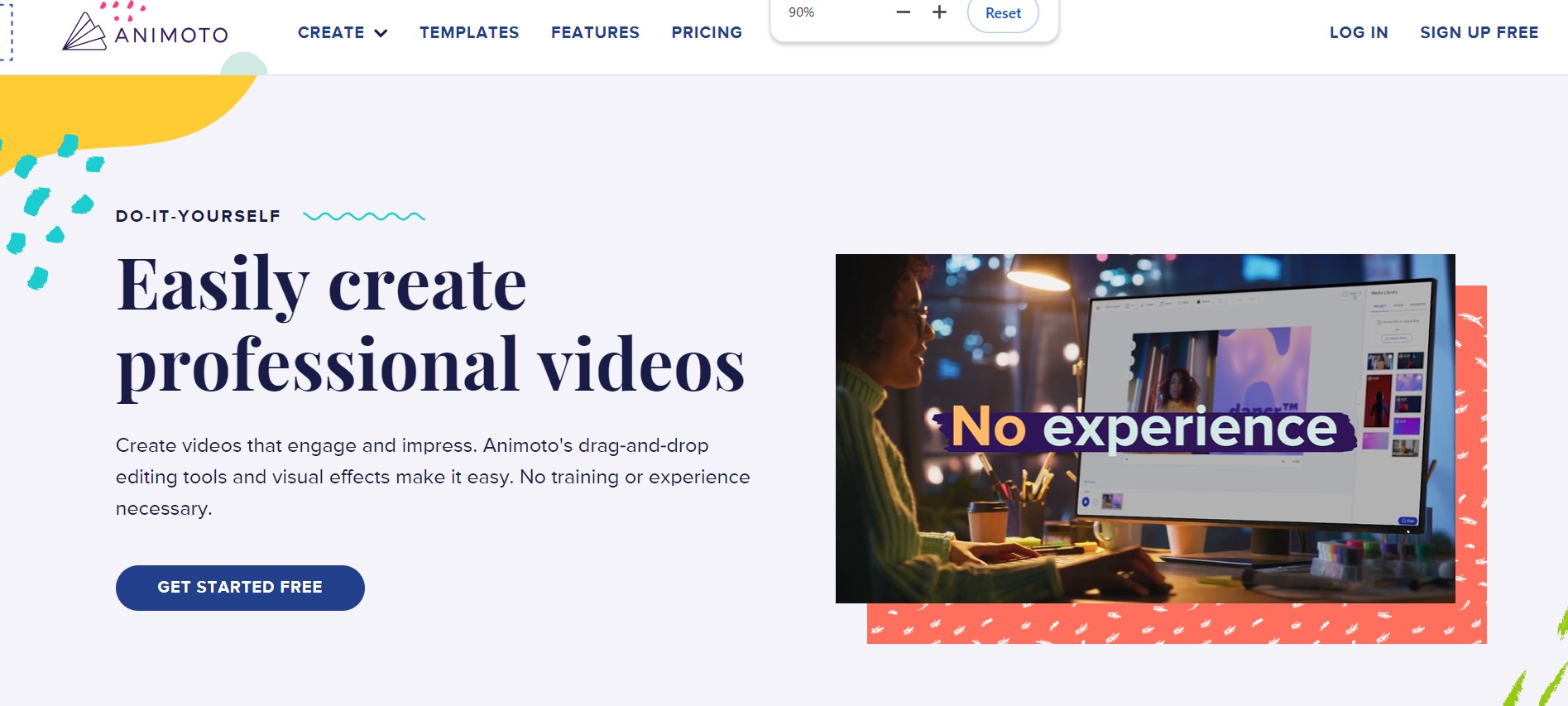
Video Templates for Marketing Campaigns
Overview: Animoto provides an easy-to-use platform for creating polished marketing videos, even for those with limited video editing experience.
Key Features:
-
Pre-built templates for various marketing purposes
-
AI-powered storyboard suggestions
-
Extensive library of royalty-free music
-
Robust branding tools for consistent visual identity
Use Case: Businesses can utilize Animoto to create effective social media ads, product announcements, or customer testimonial videos in minutes. The platform’s template-based approach ensures professional-looking results while allowing for customization to match brand guidelines.
Magisto
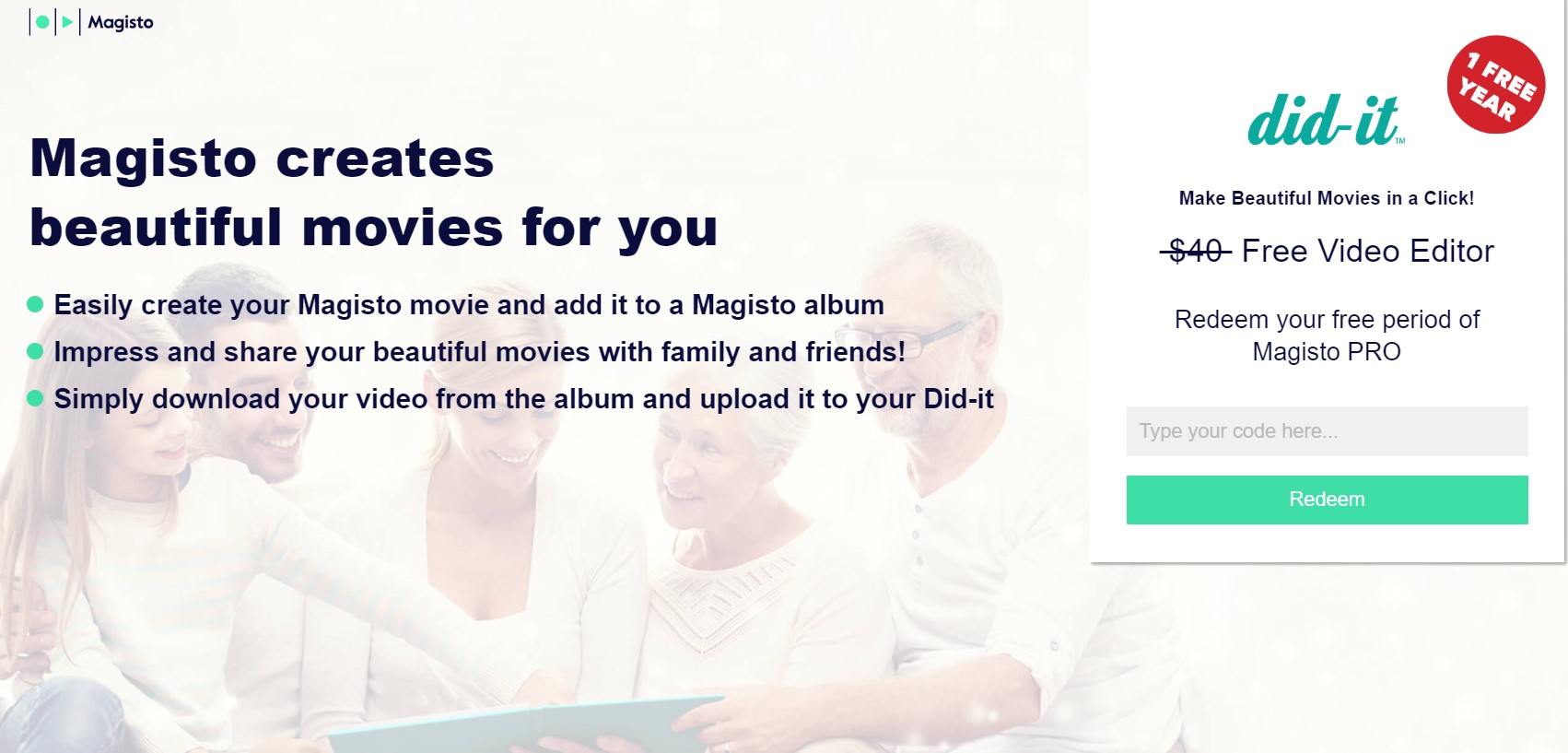
Smart Video Editing for Social Media
Overview: Magisto leverages AI to automatically edit video clips, creating professional-looking content optimized for social media platforms.
Key Features:
-
Emotion analysis to match video tone with music and effects
-
Automatic editing based on AI-driven best practices
-
Smart transitions and visual effects
-
Music overlay with beat synchronization
Use Case: Social media marketers can use Magisto to quickly transform raw footage into visually appealing social media videos. The tool’s AI-driven editing removes the need for extensive manual editing, allowing for rapid content creation that keeps pace with fast-moving social media trends.
Also Read: 20 Great YouTube Video Ideas and Make Your Channel Grow
Implementing AI Tools in Your Video Marketing Strategy
To effectively leverage these AI tools and enhance your video marketing strategy, consider the following tips:
Start with a Clear Plan: Before diving into AI tools, establish clear goals for your video content. Are you aiming to increase brand awareness, generate leads, or drive sales? Your objectives will guide your choice of tools and content creation approach.
Choose the Right Tools for Your Needs: Evaluate each AI tool based on your specific marketing requirements, budget, and team capabilities. Some tools may excel at quick social media content, while others might be better suited for long-form educational videos.
Test and Iterate: Experiment with different AI tools and techniques. Monitor performance metrics and gather feedback to refine your approach continually. Remember, the goal is to find the perfect balance between efficiency and quality that works for your brand.
Optimize for SEO: Even with AI-generated content, don’t forget the basics of video SEO. Ensure your videos have descriptive titles, detailed descriptions, relevant tags, and closed captions to improve searchability and accessibility.
Maintain the Human Touch: While AI tools can significantly streamline video creation, remember to infuse your content with your brand’s unique voice and personality.
The Future of AI in Video Marketing
As we look ahead, several exciting trends are emerging at the intersection of AI and video marketing:
Hyper-Personalization
Future AI tools will likely offer even more advanced personalization capabilities, creating truly individualized video experiences based on viewer data and behavior.
Interactive AI Videos
We can expect to see a rise in interactive video content powered by AI, allowing for real-time viewer engagement and dynamic content adjustment based on user interactions.
AI and Virtual Reality (VR)
The combination of AI and VR technologies could lead to immersive, personalized video marketing experiences that blur the lines between digital content and reality.
Also Read: Pika: Video Creation through Generative AI
Conclusion
The advent of AI has ushered in a new era for video marketing, democratizing the creation process and amplifying its impact. These innovative tools are breaking down barriers, allowing marketers to produce compelling, high-quality video content with unprecedented speed and scale. By leveraging AI, businesses of all sizes can now compete in the digital arena, crafting messages that resonate with their audience and drive engagement.
As you venture into this AI-powered landscape, keep in mind that the most effective strategies blend cutting-edge technology with genuine human creativity. The tools we’ve explored are not meant to replace the marketer’s touch, but to enhance it.
Begin your journey with small steps, embracing a spirit of experimentation and continuous learning. Throughout this process, never lose sight of your audience’s needs and preferences – they should remain the north star guiding your video marketing efforts.
The realm of video marketing is on the cusp of transformative change, with AI serving as the catalyst for this evolution. The question now is not whether to adopt these technologies, but how to best integrate them into your marketing arsenal.
Are you prepared to seize this opportunity and elevate your video content to unprecedented heights? The future of marketing awaits – and it’s being shaped by the powerful synergy of human insight and artificial intelligence.
Frequently Asked Questions (FAQ)
- Copyright: Ensure you have the right to use any images, music, or other content incorporated into your AI-generated videos.
- Disclosure: In some cases, it may be appropriate to disclose that AI was used in creating the video, especially if using AI-generated presenters.
- Bias: Be aware that AI systems can sometimes perpetuate biases present in their training data. Review your content to ensure it's inclusive and representative.
- Data privacy: If using customer data to personalize videos, ensure you're complying with relevant data protection regulations like GDPR or CCPA.
Measuring the ROI of AI tools in video marketing involves tracking several key metrics:
- Production efficiency: Compare the time and resources spent on video creation before and after implementing AI tools.
- Content volume: Track the increase in the number of videos produced.
- Engagement metrics: Monitor views, watch time, likes, shares, and comments on your AI-generated videos.
- Conversion rates: Measure how AI-generated videos impact your conversion funnel, from click-through rates to actual sales.
- Cost per video: Calculate the average cost of producing a video with AI tools versus traditional methods.
- Brand consistency: Assess improvements in maintaining consistent messaging and visual branding across videos.
Use analytics tools provided by the AI platforms, social media insights, and your own marketing analytics to gather this data. Compare these metrics to your video marketing performance prior to using AI tools to determine the ROI.
Yes, many AI video marketing tools offer features specifically designed to optimize videos for various social media platforms:
- Automatic resizing: Tools like Lumen5 and Animoto can automatically adjust video dimensions to fit different platform requirements (e.g., square for Instagram, vertical for TikTok).
- Caption generation: AI can create accurate captions, improving accessibility and engagement for silent viewing.
- Thumbnail selection: Some tools use AI to analyze your video and suggest high-impact thumbnails likely to generate clicks.
- Optimal length: AI can help trim videos to ideal lengths for each platform based on engagement data.
- Hashtag suggestions: Certain tools can analyze your video content and suggest relevant hashtags to improve discoverability.
Always review and fine-tune AI-generated optimizations to ensure they align with your brand voice and campaign objectives.
The frequency of updating your AI video marketing toolkit depends on several factors:
- Technological advancements: The field of AI is rapidly evolving. Stay informed about new features or tools that could significantly improve your video marketing efforts.
- Changes in marketing goals: As your marketing objectives evolve, you may need different capabilities from your AI tools.
- Performance metrics: Regularly assess the performance of your current tools. If you notice a plateau or decline in effectiveness, it might be time to explore new options.
- User feedback: Pay attention to feedback from your team using these tools and your audience consuming the content.
- Budget considerations: As your budget changes, you might be able to access more advanced tools or need to find more cost-effective solutions.
A good practice is to review your AI toolkit quarterly, but be prepared to make changes sooner if a game-changing new tool emerges or if your current setup isn't meeting your needs.
Remember, the goal is to find the right balance between staying current with technology and maintaining consistency in your marketing efforts.

Leave a Reply